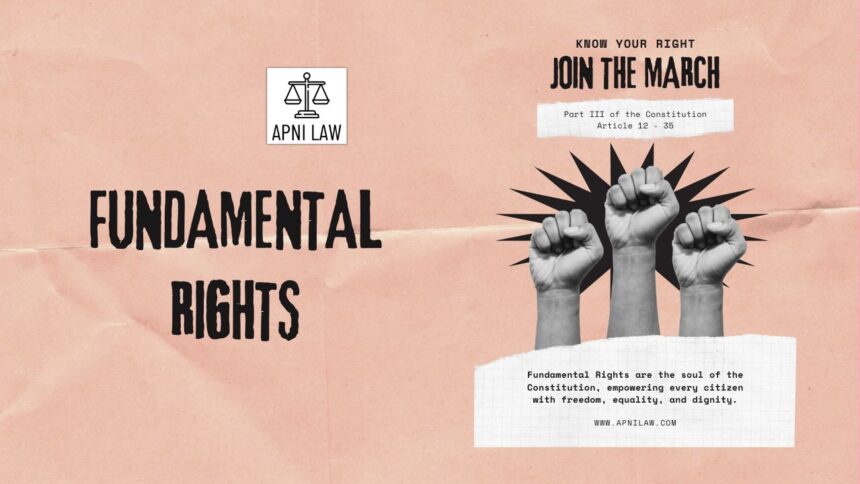Introduction
The Indian Constitution guarantees fundamental rights to protect individuals from arbitrary state action. Among them, Article 22 occupies a unique place because it deals specifically with the rights of arrested persons and also allows the State to impose preventive detention. This dual nature, granting protection while permitting detention without trial, has sparked debates about liberty, security, and state power since independence.
Article 22 reflects the framers’ effort to strike a balance. On one hand, it provides safeguards to those accused of crimes. On the other, it acknowledges the need for preventive detention in the interest of national security and public order. To understand this provision, one must look at its historical background, scope, judicial interpretation, and continuing controversies.
Historical Context of Article 22
Colonial India witnessed frequent arrests without trial under repressive laws like the Rowlatt Act of 1919, which allowed detention of individuals on mere suspicion. Leaders of the freedom movement, including Mahatma Gandhi and Bal Gangadhar Tilak, were victims of such laws. The memory of these abuses influenced the Constituent Assembly.
During debates, members expressed concerns about preventive detention. Some argued it contradicted democratic values, while others claimed it was necessary in a country facing communal tensions, partition violence, and security threats. Eventually, the framers included Article 22 to provide safeguards for arrested persons while permitting preventive detention under strict conditions.
Rights of Arrested Persons under Article 22
Article 22 lays down clear safeguards for individuals who are arrested or detained on criminal charges. These rights ensure that no one is left at the mercy of unchecked state power.
First, no person can be arrested without being informed of the reasons. Transparency prevents misuse of authority and ensures that the individual understands the basis of their detention.
Second, the arrested person has the right to consult a legal practitioner of their choice. This provision ensures access to legal aid and fair representation in court.
Third, every arrested person must be produced before a magistrate within 24 hours of arrest. This check prevents illegal detention by the police.
Finally, no person can be kept in custody beyond 24 hours without the approval of a magistrate. This safeguard protects individuals from prolonged detention without judicial oversight.
These rights reflect the constitutional guarantee of personal liberty under Article 21 and align with democratic principles of fairness and justice.
Preventive Detention under Article 22
While the first part of Article 22 protects arrested persons, the second part permits preventive detention, a controversial feature that allows detention without trial. Preventive detention means detaining a person to prevent them from committing an offence in the future, rather than punishing them for past actions.
Under Article 22, preventive detention can be authorized for up to three months. Beyond this period, an Advisory Board consisting of judges must review the detention. If the Board approves, the detention can be extended. Parliament has the power to determine the maximum period of preventive detention, which currently extends up to twelve months under certain laws.
India is among the few democratic nations where preventive detention exists even during normal times, not just emergencies. Laws such as the National Security Act (NSA), 1980 and the Conservation of Foreign Exchange and Prevention of Smuggling Activities (COFEPOSA), 1974 operate under this framework.
Judicial Interpretation of Article 22
Over the years, the judiciary has played an important role in defining the scope of Article 22.
In A.K. Gopalan v. State of Madras (1950), the Supreme Court upheld preventive detention laws, ruling that Article 21 and Article 22 should be read separately. However, this narrow interpretation changed in Maneka Gandhi v. Union of India (1978), where the Court held that any law depriving liberty must be just, fair, and reasonable. This expanded judicial scrutiny of preventive detention.
The Court has also emphasized that preventive detention should not be used arbitrarily. In A.K. Roy v. Union of India (1982), the Court observed that while preventive detention is constitutionally valid, it must be exercised with extreme caution.
Through these rulings, the judiciary has tried to balance individual liberty with national security.
Criticism of Preventive Detention
Preventive detention has always attracted criticism. Civil liberties advocates argue that it violates the principle of natural justice because it allows detention without trial. Critics point out that preventive detention laws are often misused against political opponents, activists, or dissenters.
The Constituent Assembly itself was deeply divided on this issue. Some members argued that including preventive detention contradicted the very spirit of independence. Dr. B.R. Ambedkar admitted that while he disliked the provision, the prevailing circumstances compelled its inclusion.
Even today, human rights organizations argue that preventive detention goes against international standards of human rights, such as those laid down in the Universal Declaration of Human Rights (1948) and the International Covenant on Civil and Political Rights (1966).
Importance of Article 22 in Indian Democracy
Despite criticism, Article 22 plays an important role in India’s constitutional framework. On one side, it protects arrested persons from unlawful detention and ensures legal safeguards. On the other, it gives the State the power to act against threats to national security and public order.
India’s experience shows that while preventive detention is sometimes necessary, it must always remain an exception rather than the rule. Judicial review and constitutional safeguards prevent its misuse to a large extent.
Frequently Asked Questions
1. What is the maximum period of preventive detention under Article 22?
Normally, preventive detention cannot exceed three months without approval from an Advisory Board. Parliament can extend this period to twelve months under specific laws.
2. How does Article 22 protect arrested persons?
It provides safeguards such as the right to be informed of reasons for arrest, the right to consult a lawyer, production before a magistrate within 24 hours, and protection against illegal custody.
3. Why is preventive detention controversial?
It is controversial because it allows detention without trial, which many believe undermines democratic values and individual freedom. Critics argue that it is often misused by authorities.
Conclusion
Article 22 of the Indian Constitution embodies a constitutional paradox. It grants essential rights to arrested persons, ensuring fairness and accountability. At the same time, it legitimizes preventive detention, a practice that restricts liberty to protect public order and security. This dual structure reflects the framers’ attempt to balance freedom with responsibility.
While preventive detention continues to invite criticism, it remains constitutionally valid. The real challenge lies in ensuring that the State uses this power cautiously and only when absolutely necessary. Courts, civil society, and vigilant citizens play a key role in checking misuse.
In the end, Article 22 reminds us that democracy is not only about liberty but also about safeguarding national security. Striking this balance will determine how India upholds both individual rights and collective safety in the years to come.
For any specific query call at +91 – 8569843472








